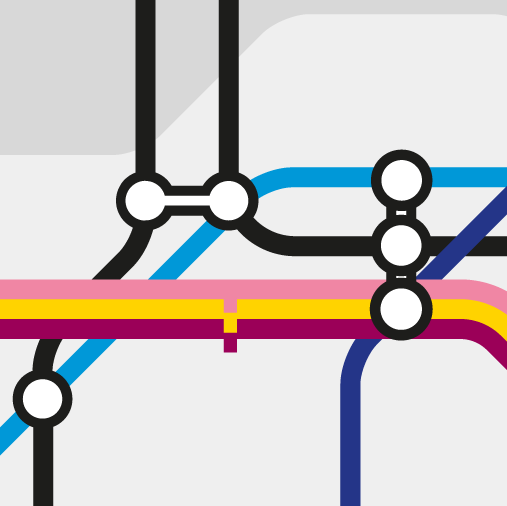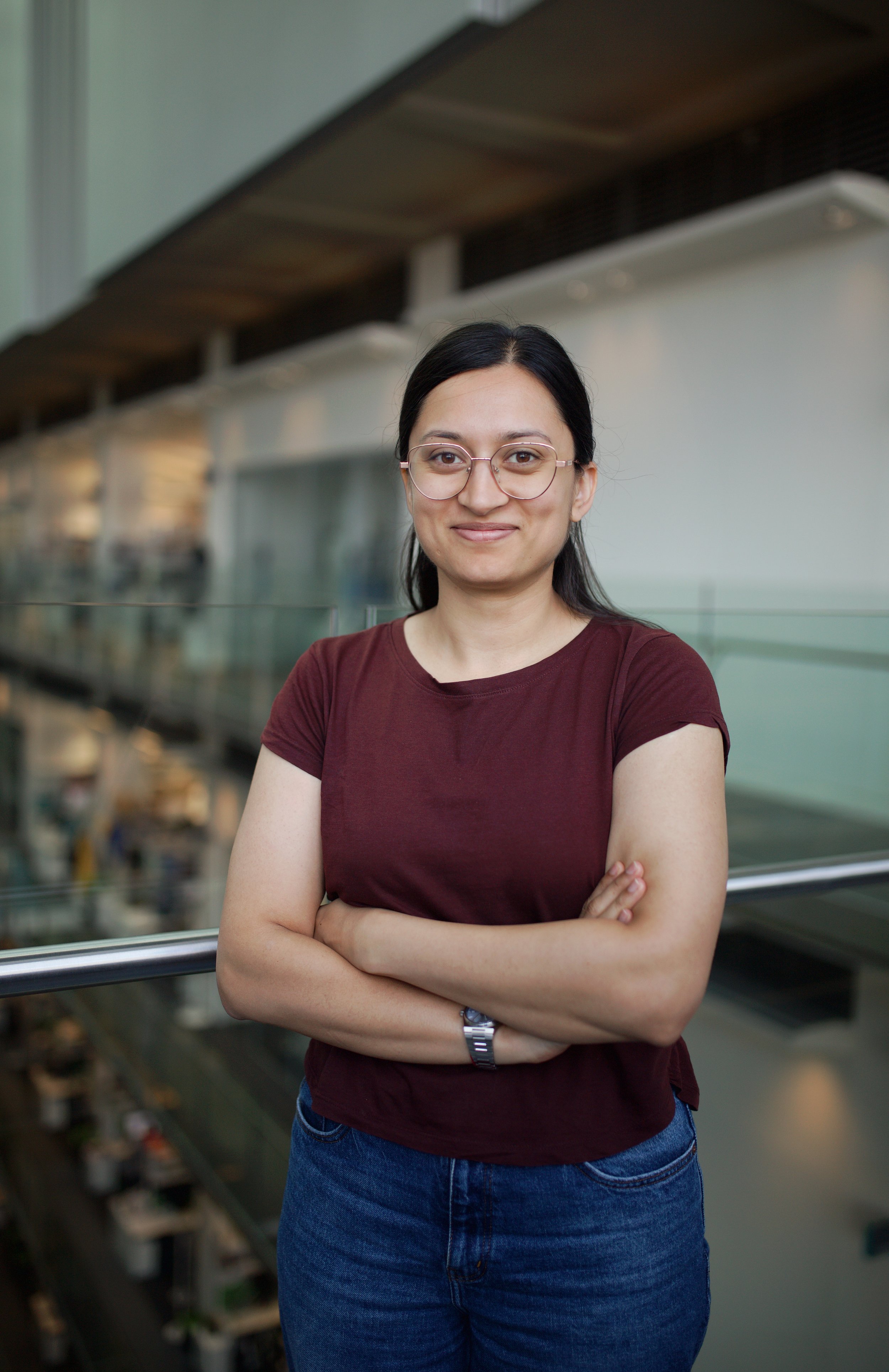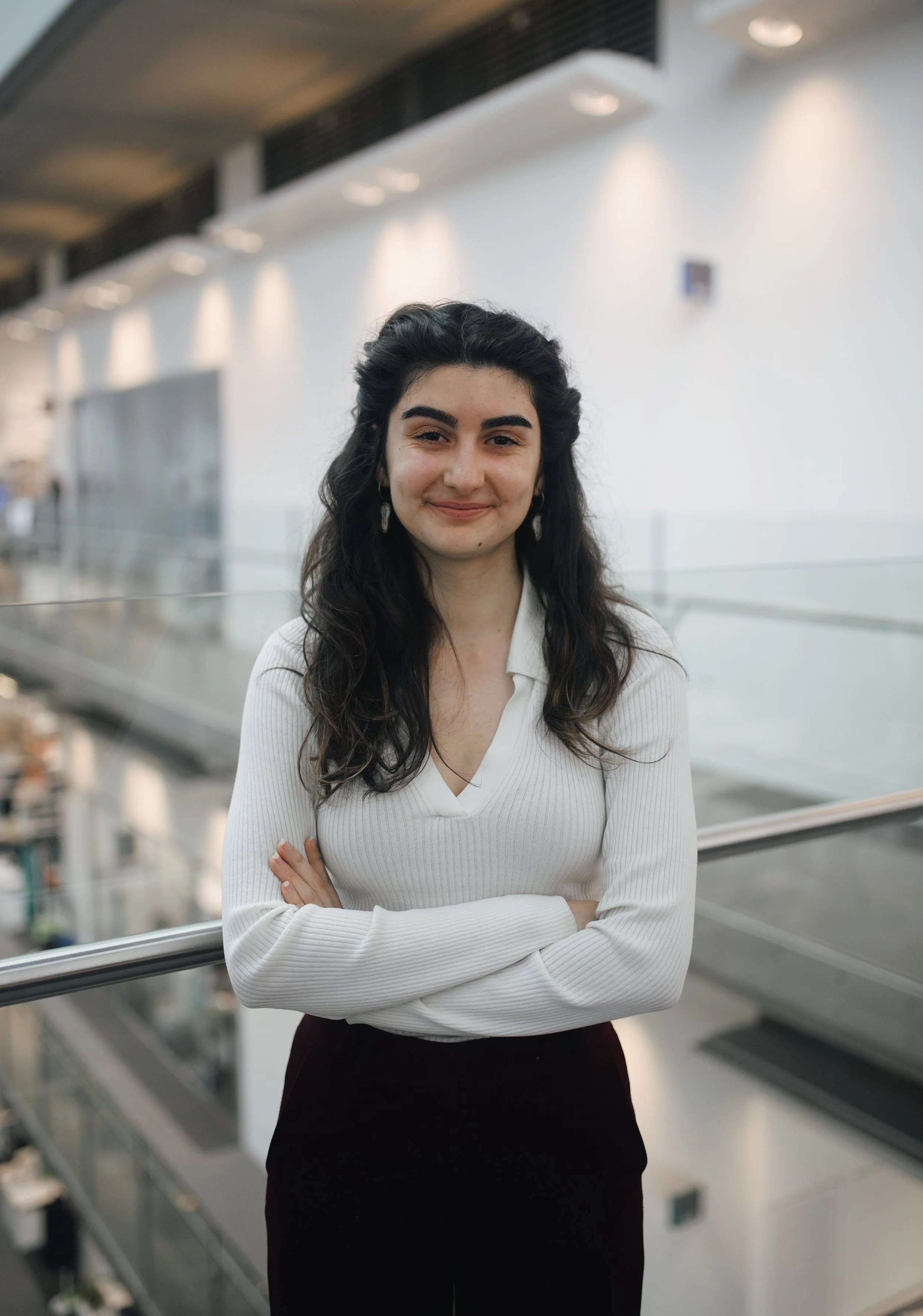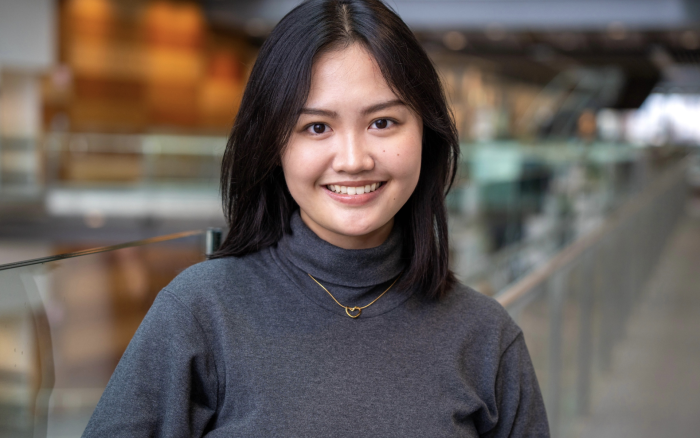
Research
Our lab investigates how neural circuits generate instinctive behaviors—and how these circuits are reshaped by internal states and across the lifespan to produce adaptive actions. Instinctive behaviors such as parenting, feeding, mating, aggression, and hunting are orchestrated by genetically pre-specified circuits and can be expressed with little prior learning. These behaviors offer a unique window into linking gene expression, circuit architecture, and behavioral function.
Although traditionally viewed as “hard-wired,” we now know that the operation of these circuits depends profoundly on an animal’s physiological and experiential state. Our research aims to uncover the cellular and circuit-level mechanisms through which states such as pregnancy or hunger alter neural processing in vivo, and how these changes enable appropriate behavioral repertoires at different life stages.
By combining circuit neuroscience, behavioral profiling, and molecular and cellular approaches, we seek to transform our understanding of how the brain balances evolutionary stability with plasticity—providing insight into fundamental brain function as well as its vulnerability in health and disease.
Neural Circuit basis of instinct
We investigate the functional circuit architecture underlying instinctive behaviors, such as parenting. We are driven by biological questions and use state-of-the-art systems neuroscience approaches (e.g., viral tracing, in vivo imaging, electrophysiology, optogenetics, behavioral assays) to answer them.
Circuit logic of internal state changes
We address how physiological states such as pregnancy, stress, sleep, or hunger affect information processing in neural circuits and orchestrate adaptive behavioral changes, with a particular focus on hormone-mediated states.
Tool development
We are developing viral-genetic tools to delineate and interrogate the neural circuits underlying instinctive behaviors and to determine how the function of such circuits is affected by internal states.

People
(in order of joining the lab)
JOHANNES (JONNY) KOHL - PI
patty wai - staff scientist
Bradley Jamieson - Postdoc
Basma Husain - postdoc
Laura Fuentes Gómez - research assistant
Chenyue Ren - PhD student
Nikolaos (Nikos) Balaskas - Staff Scientist
Wing Gee (Gigi) SHUM - PhD student
Paul conway - postdoc
Phoebe claxton - research assistant
ALUMNI
(in order of leaving the lab)
Estelle Nassar (2019-21) - Research assistant
Matthew Lee (2020-21) - MSc student
Vanessa Lopez (2021-22) - MSc student
Aashna Sahni (2021-22) - MSc student
Andres Crespo (2022-23) - Staff scientist
Maxwell Chen (2021-23) - MSc student / Research assistant
Neven Borak (2020-24) - PhD student
Lina El Rasheed (2023-24) - MSc student
Francesco Monaca (2019-24) - PhD student
Mingran Cao (2020-24) - PhD student
Rachida Ammari (2019-25) - Postdoc
Swang Liang (2023-25) - Research assistant
Irene Salgarella (2022-25) - PhD student
Vasyl Mykytiuk (2021-25) - PhD student
News
2025/10 - Mingran’s paper on hunger and hormonal state integration is out in Nature - congrats!
2025/10 - Jonny wins the Eric Kandel Young Neuroscientists Prize 2025!
2025/09 - Gigi (PhD student), Paul (Postdoc) and Phoebe (research assistant) join the lab - welcome!
2025/09 - Irene successfully defended her PhD thesis - congratulations!
2025/07 - The lab is awarded a Wellcome Trust Discovery Award!
2025/06 - Vasyl successfully defends his PhD thesis - congratulations!
2025/05 - Neven’s paper on how male mice infer opponent rank is out in Current Biology. Congrats!
2025/05 - The lab is awarded a BBSRC Research Grant.
2025/03 - Nikos joins the lab as a staff scientist - welcome!
2025/01 - Elaine joins the lab as an MSc student - welcome!
2024/12 - Francesco successfully defended his PhD thesis - congratulations!
2024/11 - Mingran successfully defended her PhD thesis - congratulations!
2024/09 - Chenyue joins the lab as a PhD student - welcome!
2024/07 - Laura joins the lab as an MSc student - welcome!
2024/02 - Neven successfully defended his PhD thesis - congratulations!
2023/12 - Rachida and Francesco win a Crick Scientific Achievement Award - congrats!
2023/11 - Swang Liang joins the lab as a Research Assistant. Welcome!
2023/10 - Lina El Rasheed joins the lab as an MSc student - welcome!
2023/10 - Rachida's and Francesco's paper on how hormone-mediated neural remodelling drives parenting onset during pregnancy is out in Science. Congrats!
2023/08 - The lab is awarded a BBSRC Pioneer Grant.
2023/05 - Basma Husain starts as a Postdoc in the lab. Welcome Basma!
2023/04 - Our paper describing a low-cost device for cryoanesthesia of neonatal rodents is out in HardwareX. This has been a collaborative effort with the Crick's fantastic Making Lab.
2022/10 - Irene Salgarella starts as a Wellcome Trust Optical Biology PhD student in the lab. Welcome Irene!
2022/05 - Andres Crespo starts as an interim lab manager. Welcome Andres!
2021/10 - Vasyl Mykytiuk starts as PhD student in the lab. Welcome Vasyl!
2021/10 - Vanessa López, Aashna Sahni and Maxwell Chen start as MSc students in the lab - welcome!
2021/06 - Bradley wins the Julia Buckingham Award of the British Society of Neuroendocrinology. Congrats!
2021/01 - Mingran is awarded a Boehringer Ingelheim PhD Fellowship. Congrats Mingran!
2020/10 - Mingran Cao starts as PhD student in the lab. Welcome Mingran!
2020/09 - Matthew Lee starts as an MSc students in the lab. Welcome Matthew!
2020/09 - New insight article by Neven and Jonny in eLife.
2020/09 - Neven Borak starts as a Wellcome Trust Neuroscience PhD student in the lab. Welcome Neven!
2020/09 - Bradley Jamieson starts as a Postdoc in the lab. Welcome Bradley!
2020/05 - New preview by Rachida and Jonny in Neuron.
2020/02 - New review on the neural circuit basis of parenting by Jonny in Current Opinion in Neurobiology.
2020/01 - New dispatch by Francesco and Jonny in Current Biology.
2019/10 - Estelle Nassar joins the lab as a Research Assistant. Welcome Estelle!
2019/09 - Francesco Monaca starts as PhD student in the lab. Welcome Francesco!
2019/06 - Rachida Ammari starts as a Postdoc in the lab. Welcome Rachida!
2019/05 - The lab is awarded an ERC Starting Grant.
2019/03 - Patty Wai joins the lab as a Staff Scientist / Lab Manager. Welcome Patty!
2019/01 - Jonny receives a NARSAD Young Investigator Award.
2019/01 - The lab opens its doors at the Francis Crick Institute.
publications
Google Scholar | Research Gate
selected Research articles from the kohl lab (2019–present)
Jamieson BB, Chen MX, Liang S, El Rasheed LSH, Chattey GMK and Kohl J. Overnight circuit remodelling drives juvenile alloparental care. Preprint: bioRxiv, https://www.biorxiv.org/content/10.1101/2025.06.13.659524v1.
Cao M, Ammari R, Chen MX, Wai P, Jamieson BB, Liang S, Husain BFA, Sahni A, Legrave N, MacRae J, Strom M and Kohl J. Integration of hunger and hormonal state gates infant-directed aggression. Nature, 648(8092):138-145; doi: 10.1038/s41586-025-09651-2 (2025). pdf Preprint: https://www.biorxiv.org/content/10.1101/2024.11.25.625278v1.
Borak N, Wai P, Rodriguez Villamayor P, Claxton PM, Liang S and Kohl J. Dominance rank inference in mice via chemosensation. Current Biology, 35(11):2746-2751.e3; doi: 10.1016/j.cub.2025.04.063 (2025). pdf
Ammari R#, Monaca F#, Cao M, Nassar E, Wai E, Del Grosso NA, Lee M, Borak N, Schneider-Luftman D and Kohl J. Hormone-mediated neural remodeling orchestrates parenting onset during pregnancy. Science, 382(6666):76-81; doi: 10.1126/science.adi0576 (2023) pdf. link for full access (# equal contribution)
Jamieson BB, Cano-Ferrer X, Konstantinou G, de Launoit E, Renier N, Imbert A and Kohl J. A low-cost device for cryoanesthesia of neonate rodents. HardwareX, e00417; doi: https://www.sciencedirect.com/science/article/pii/S246806722300024X (2023). Preprint: bioRxiv 2022.06.09.495437; doi: https://doi.org/10.1101/2022.06.09.495437.pdf.
Autry AE, Wu Z, Kohl J, Bambah-Mukku D, Rubinstein ND, Marin-Rodriguez B, Carta I, Sedwick V and Dulac C. Perifornical area Urocortin-3 neurons promote infant-directed neglect and aggression. eLife, doi: https://doi.org/10.7554/eLife.64680 (2021). Preprint: bioRxiv https://www.biorxiv.org/content/biorxiv/early/2019/07/09/697334.full.pdf (2019).
reviews & perspectives
Husain BFA and Kohl J. Plasticity of the parental brain. Curr Op. Neurobiol., doi: https://doi.org/10.1016/j.conb.2025.103129 (2025). pdf
Borak N and Kohl J. A possible link between olfaction and miscarriage. eLife, doi: 10.7554/eLife.62534 (2020). pdf (Insight)
Ammari R and Kohl J. Charting a Path Toward Aggression. Neuron, 106(4):556-558. doi: 10.1016/j.neuron.2020.04.029 (2020). pdf (Preview)
Monaca F and Kohl J. Neuroscience: Plasticity Matters for Mating. Current Biology, 30 (2), R86-R88. doi: 10.1016/j.cub.2019.11.052 (2020). pdf (Dispatch)
Kohl J. Parenting - a paradigm for investigating the neural circuit basis of behavior. Curr Op. Neurobiol. 60:84-91. doi: 10.1016/j.conb.2019.11.011 (2020). pdf
Pre-2019
Kohl J. Circuits for care. Science 362(6411):168-169. doi: 10.1126/science.aav1249 (2018). pdf
Kohl J, Babayan BM, Rubinstein ND, Autry AE, Marin-Rodriguez B, Kapoor V, Miyamichi K, Zweifel LS, Luo L and Dulac C. Functional circuit architecture underlying parental behaviour. Nature 556(7701):326-331. doi: 10.1038/s41586-018-0027-0 (2018). pdf
Spotlight in Trends in Neurosciences by Fischer & O'Connell
Kohl J and Dulac C. Neural control of parental behaviors. Curr Op. Neurobiol. 49:116-122. doi: 10.1016/j.conb.2018.02.002 (2018). pdf
Kohl J, Autry AE and Dulac C. The neurobiology of parenting: A neural circuit perspective. Bioessays 39(1): 1-11. doi: 10.1002/bies.201600159 (2017). pdf
Renier N, Adams EL, Kirst C, Wu Z, Azevedo R, Kohl J, Autry AE, Kadiri L, Umadevi K, Zhou Y, Wang VX, Tang CY, Olsen O, Dulac C, Osten P, Tessier-Lavigne M. Mapping of brain activity by automated volume analysis of immediate early genes. Cell 165(7): 1789-1802. doi: 10.1016/j.cell.2016.05.007 (2016). pdf
Kohl J, Huoviala P and Jefferis GSXE. Pheromone processing in Drosophila. Curr Op. Neurobiol. 34: 149-57. doi: 10.1016/j.conb.2015.06.009 (2015). pdf
Schneider R, Hosy E, Kohl J, Klueva J, Choquet D, Thomas U, Voigt A and Heine M. Mobility of calcium channels in the presynaptic membrane. Neuron 86(3): 672-9. doi: 10.1016/j.neuron.2015.03.050 (2015). pdf
Kohl J, Ng J, Cachero S, Ciabatti E, Dolan MJ, Sutcliffe B, Tozer A, Ruehle S, Krueger D, Frechter S, Branco T, Tripodi M, Jefferis GSXE. Ultrafast tissue staining with chemical tags. PNAS 111(36): E3805-14. doi: 10.1073/pnas.1411087111 (2014). pdf
Kohl J, Ostrovsky AD, Frechter S and Jefferis GSXE. A bidirectional circuit switch reroutes pheromone signals in male and female brains. Cell 155(7): 1610-23. doi: 10.1016/j.cell.2013.11.025 (2013). pdf
Kohl J and Jefferis GSXE. Decoding the fly brain. Current Biology 21(1): R19-20. doi: 10.1016/j.cub.2010.11.067 (2011). pdf
Funding
JOIN
We are always looking for highly motivated and creative people to join our lab. We are part of a diverse and dynamic research environment with exceptional resources in one of the most exciting scientific hubs in the world.
Postdoctoral Fellows
If you are interested in joining the group as a postdoc, please contact Jonny with (1) a cover letter detailing prior research experience and future career goals, (2) a CV and (3) the names and contact details of 2-3 referees. Applicants are encouraged to apply for external funding (e.g. EMBO, HFSP, Sir Henry Wellcome, Branco Weiss, DFG, SNF, Newton International, L’Oréal-UNESCO and EU Marie Curie fellowships).
We are especially keen to recruit people with a background in systems neuroscience, but all strong applications will be considered seriously. Quantitative and programming skills are a bonus. You should typically apply at least 6 months in advance of when you would like to start.
Phd studentS
Prospective students who would like to carry out a PhD in the lab should contact Jonny and include a CV. We welcome applications from motivated students of a broad range of backgrounds (Biological Sciences, Engineering, Computer Science etc.). Graduate students will join the lab via the four-year Crick PhD Programme (applications open in early October).
MSC STUDENTS
MSc projects for students from the Crick’s partner universities (UCL / Imperial / King’s) are available from time to time. Please contact Jonny.
SUMMER STUDENTS
Undergraduate students interested in an internship are encouraged to apply to the Crick-Calleva Summer Student Programme (deadline late January).
CONTACT
The Francis Crick Institute
1 Midland Road
London NW1 1AT, UK
jonny.kohl@crick.ac.uk
















